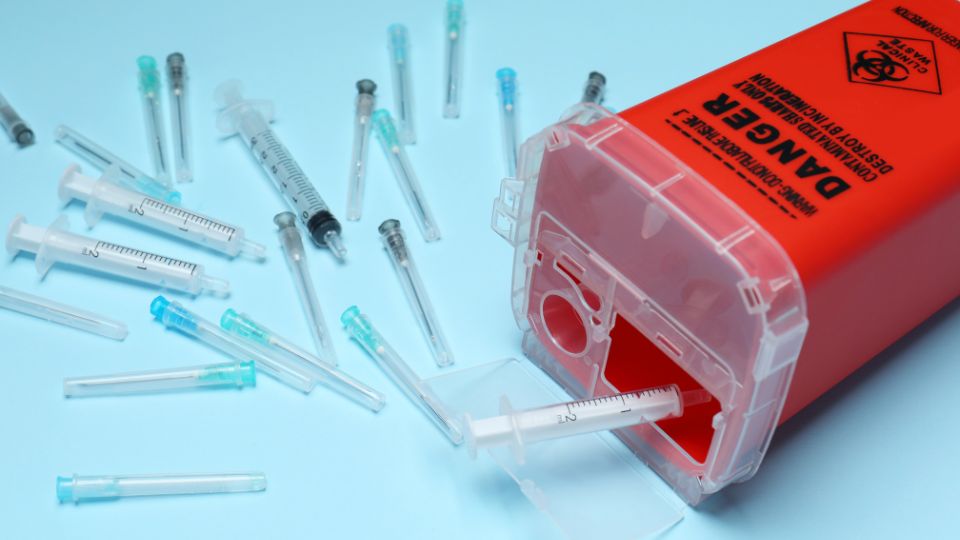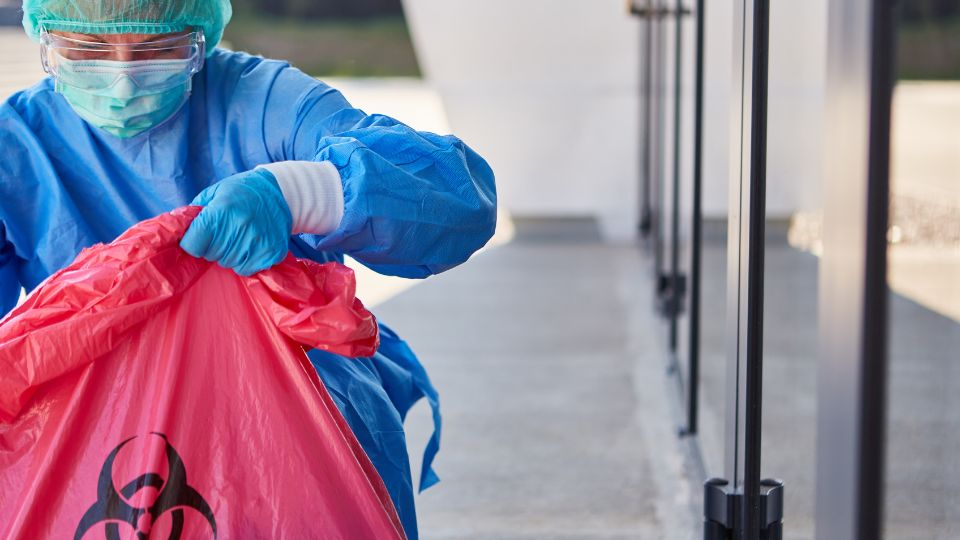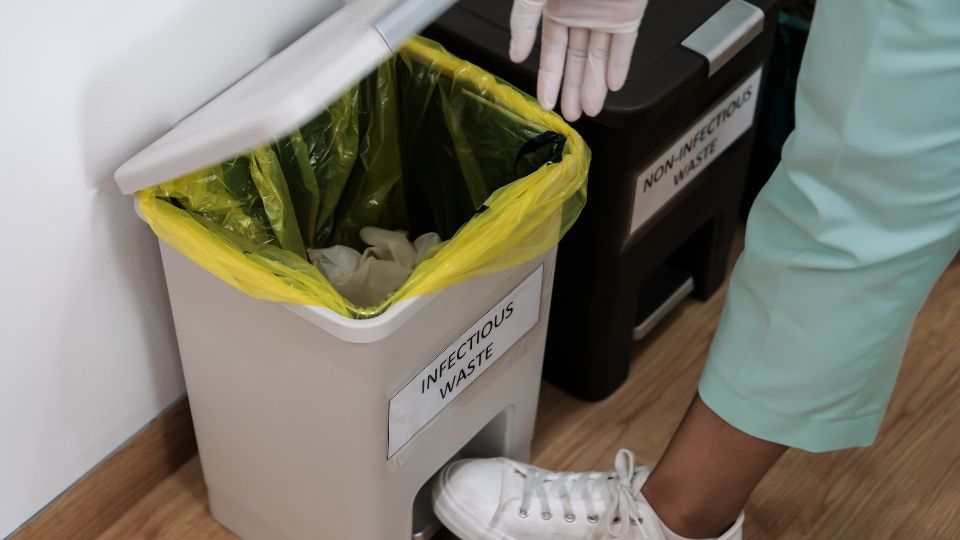
Clinical waste management is essential for businesses within the healthcare, aesthetics, pharmaceutical sectors and beyond in the UK.
It is important for you to effectively dispose of clinical and medical waste. Disposing of clinical and medical waste can ensure your business is environmentally safe and complies with stringent health regulations in the UK.
This guide will provide you, as a UK business owner, with all the information you need to know about clinical waste, medical waste disposal, and the various types of clinical waste, including the various bins required and handling procedures.
Table of Contents
- What is Clinical Waste?
- What are the Different Types of Clinical Waste?
- How is Clinical Waste Disposed of Safely?
- What are the Clinical Waste Disposal Methods?
- What Clinical Waste Bins, Bags, and Containers Are There?
- Which Types of Businesses Need Clinical Waste Collections?
- What are the UK Laws and Regulations for Clinical & Medical Waste?
- Clinical and Medical Waste Statistics
- Conclusion
What is Clinical Waste?
Clinical waste, also known as medical waste, is any waste material that is created from healthcare or similar activities, which could pose a risk of infection or harm to humans or the environment.
This includes waste generated by hospitals, dental practices, laboratories, veterinary clinics, and even beauty salons that perform treatments like tattooing and piercing.
Clinical waste is not the same as biological waste.
Examples include:
- Fabrics or materials which contain either micro-organisms or toxins which can cause disease.
- Materials which have been contaminated with any type of medicine which has a biologically active pharmaceutical agent.
- Materials contaminated with biological fluids such as rubber gloves, dressings, and PPE equipment.
- Sharp objects like needles, syringes or scalpels.
What are the Different Types of Clinical Waste?
Understanding the types of clinical waste is crucial for proper disposal & clinical waste segregation.
The categories include:
- Includes all your needles, syringes, scalpels, etc.
- Nappies, tampons, menstrual pads, etc.
Infectious waste:
- Bandages, masks, swabs, gloves, PPE, dressings, wipes etc.
Offensive waste:
- Empty colostomy bags, incontinence pads, etc.
Cytotoxic waste:
- Blister pack (for holding pills), medicinal vials, and any material which becomes contaminated with medicines.
Dental waste:
- Teeth with fillings, unwanted amalgam
Anatomical waste:
- Organs, body parts, blood bags
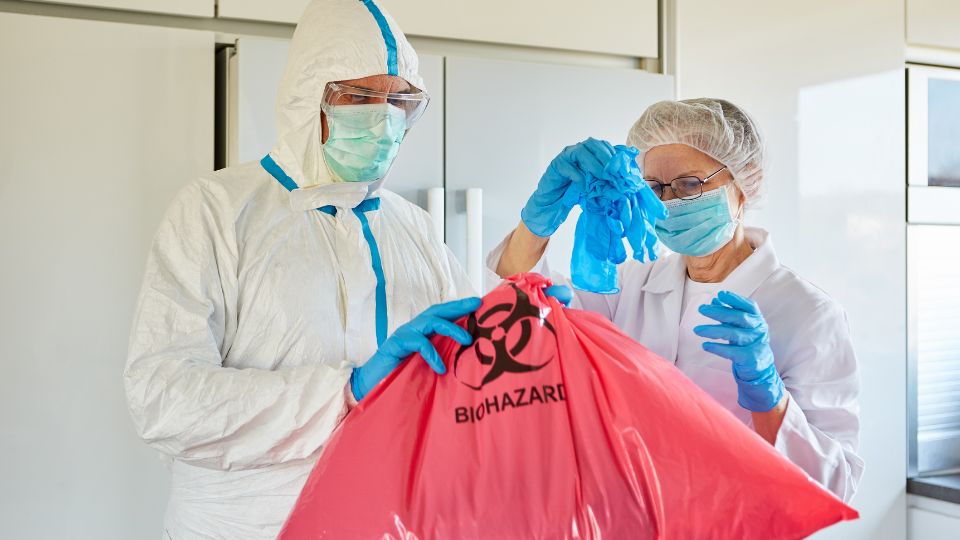
How is Clinical Waste Disposed of Safely?
To ensure that you safely dispose of clinical waste, make sure to involve segregation, containment, transportation, and treatment methods that adhere to legal and environmental standards.
It typically involves:
- Segregation: Waste must be separated according to its type in suitable clinical waste bins or bags, using colour coding to avoid cross-contamination.
- Storage: Waste should be stored securely, in the correct bins, in compliance with health and safety guidelines. Bins shouldn’t be accessible to the public and out of walkways.
- Collection and Transportation: Licensed clinical waste collection services must be used to transport waste safely to treatment or disposal facilities.
- Treatment: Depending on the type, waste is either incinerated, autoclaved, or chemically treated to eliminate hazards before disposal.
What are the Clinical Waste Disposal Methods?
Due to its dangerous nature, incineration is the most common method of clinical waste disposal. This ensures that the dangerous substances are removed and the potential for passing on disease is minimised.
Other disposal methods include:
Chemical: this involves either adding chemicals to dissolve products or neutralising their harmful properties.
Irradiative: this uses autoclave microwave technology to kill off any dangerous substances.
Biological process: this uses enzymes to break down components of the clinical waste – although this method is rarely used as it’s still fairly new.
What Clinical Waste Bins, Bags, and Containers Are There?
Appropriate containment is essential for clinical waste management. The UK employs a colour-coded system for clinical waste bins, bags, and containers to distinguish between different waste types:
- Yellow bags: For highly infectious waste that requires incineration.
- Orange bags: For infectious waste suitable for alternative treatment methods.
- Purple bags: Specifically for cytotoxic and cytostatic waste (chemotherapy waste).
- Sharps bins: Rigid, puncture-resistant (typically yellow) containers for needles and other sharps.
- White containers: For Amalgam dental waste.
- Red waste bags: Holds anatomical waste (body parts, blood etc).
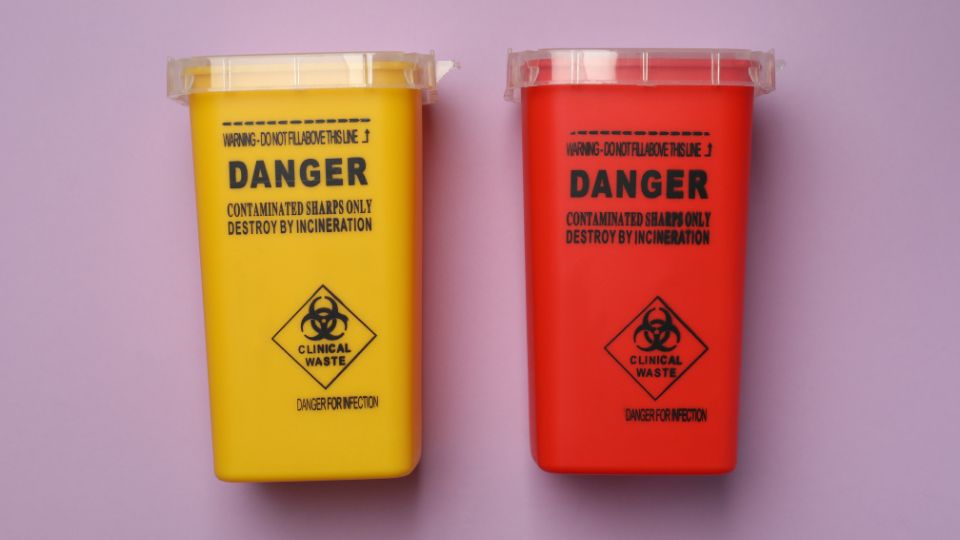
Which Types of Businesses Need Clinical Waste Collections?
Businesses that generate any form of clinical or medical waste require clinical waste collections, including:
- Healthcare facilities (hospitals, clinics, dental practices)
- Laboratories and research centres
- Veterinary clinics
- Nursing and care homes
What are the UK Laws and Regulations for Clinical & Medical Waste?
The UK’s laws and regulations governing clinical/medical waste ensure its safe management and disposal. Key legislation includes:
- Health and Safety at Work Act 1974: Ensures the safety of employees dealing with clinical waste.
- Environmental Protection Act 1990: Sets the framework for waste management and duty of care.
- Hazardous Waste Regulations 2005: Specifies the classification, handling, and disposal of hazardous wastes, including clinical waste.
Businesses must comply with these regulations to avoid penalties and ensure the safety of the public and the environment.
By using a reputable commercial waste disposal company, like us, you can be assured that your business is fully compliant with the various legislation and avoid any fines.
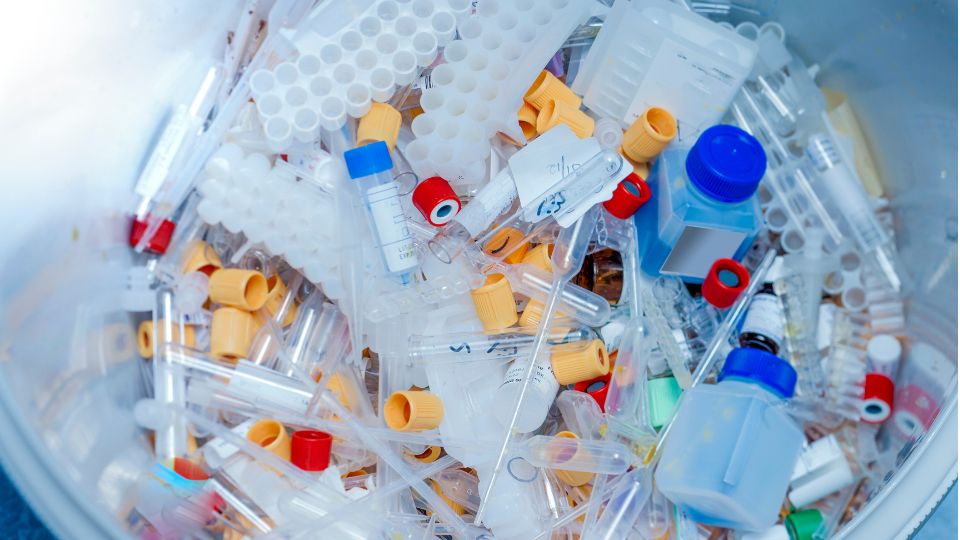
Clinical and Medical Waste Statistics
- The NHS produces 156,000 tonnes of clinical waste each year.
- The healthcare sector produces 4.4% of all global carbon emissions.
- 85% of healthcare waste is considered general whilst 15% is hazardous.
- 1/3 of healthcare facilities globally do not safely manage their waste.
- Clinical waste costs £300 more per tonne to dispose of safely compared to regular general waste.
Conclusion
By familiarising yourself with the types of clinical waste, disposal methods, and legal requirements, your business can ensure the safe and efficient handling of medical waste.
Remember, the right clinical waste bins, bags, and collection services are pivotal in the effective management of clinical waste, and safeguarding public health and the environment.
Unsure of what size of bin you will need for your clinical waste?
You can read our guide on bin sizes or ring our team on 01205 338 123.



